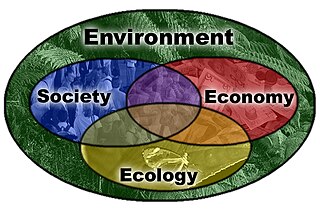aliases:
- Green Computing
- Computational Sustainability
tags:
- Type/Concept
- proto
publish: true
version: 1
dateCreated: 2023-07-30, 17:14
dateModified: 2024-07-09, 09:19
from:
- "[[Ethics of Technology]]"
related:
contra:
to: Sustainable Computing
| Green computing, green IT, or ICT sustainability, is the study and practice of environmentally Sustainable Computing or IT. | |
|---|---|
| wikipedia:: Green computing | |
 |
Computational Sustainability is an emerging field that attempts to balance societal, economic, and environmental resources for the future well-being of humanity using methods from mathematics, computer science, and information science fields. Sustainability in this context refers to the world's ability to sustain biological, social, and environmental systems in the long term. |
| wikipedia:: Computational sustainability |
Green computing, green IT (Information Technology), or ICT sustainability, is the study and practice of environmentally Sustainable Computing or IT.
The goals of green computing are similar to green chemistry: reduce the use of hazardous materials, maximize energy efficiency during the product's lifetime, increase the recyclability or biodegradability of defunct products and factory waste. Green computing is important for all classes of systems, ranging from handheld systems to large-scale data centers. Many corporate IT departments have green computing initiatives to reduce the environmental effect of their IT operations. Yet it is also clear that the environmental footprint of the sector is significant, estimated at 5-9% of the world's total electricity use and more than 2% of all emissions. Data centres and telecommunications will need to become more energy efficient, reuse waste energy, and use more renewable energy sources to stay competitive. Some believe they can and should become climate neutral by 2030.